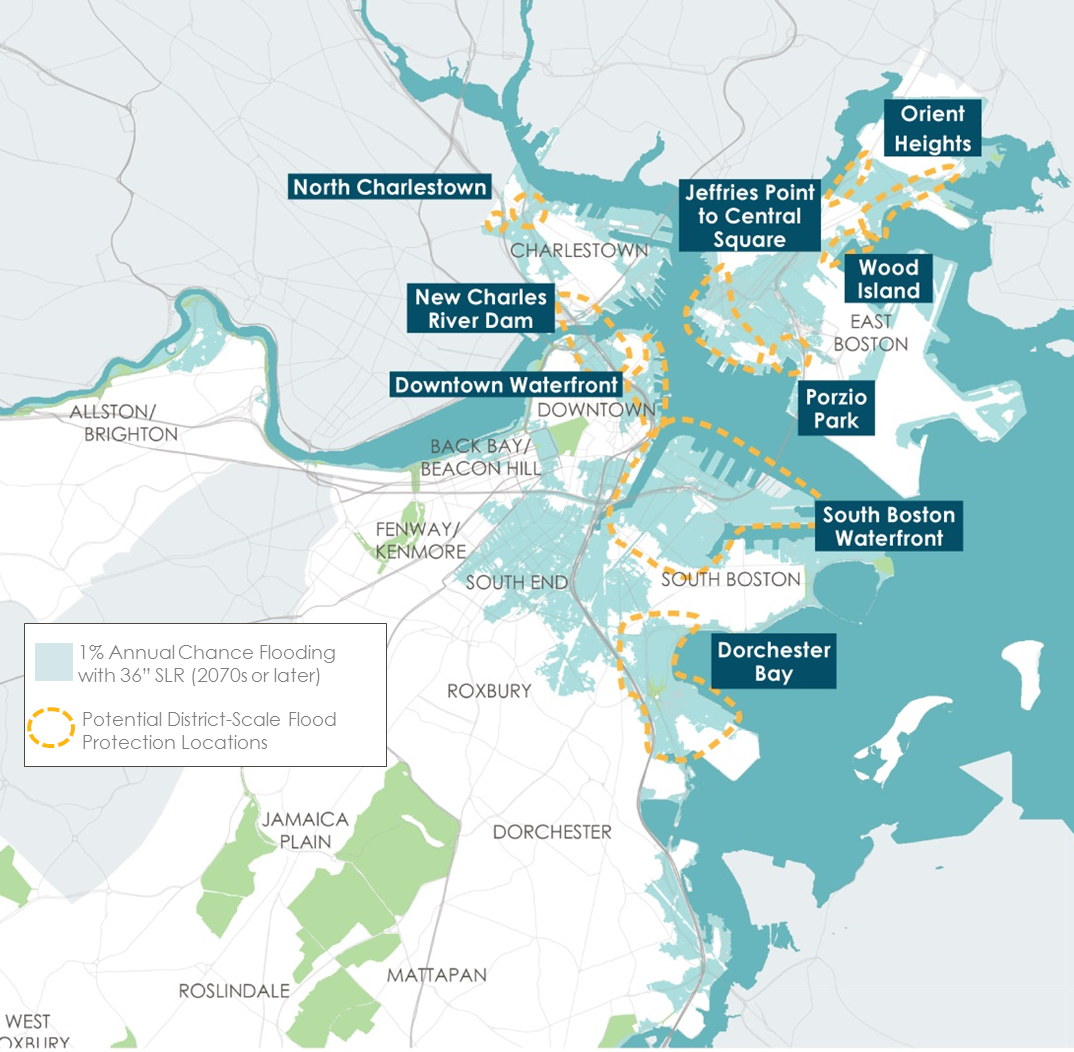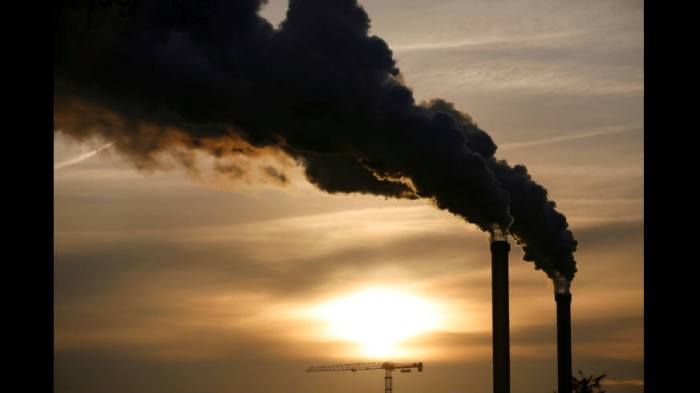Thanks to the harbor and multiple rivers, Boston bloomed into a bustling trade city. But that same coastline that helped Boston flourish is one reason why the city is especially vulnerable to climate change, a group of researchers say. As the sea level continues to rise in the upcoming century, the likelihood of major floods will increase “from a 1 percent annual chance to a monthly reality,” according to the Climate Ready Boston report. Mayor Marty Walsh last week released the latest part of the city’s Climate Ready Boston report, an effort to ready Boston against the effects of climate change. Its findings are a bit grim. “Even under the most optimistic projections of global emissions reductions, Boston faces serious risk from climate change and must adapt,” the report reads.
However, Walsh added, “Boston is more climate-ready today than it has ever been before. We have the knowledge, talent and resources to prepare our neighborhoods and businesses for climate change and will continue to cut carbon emissions, tackling climate change head-on.” Boston did launch its climate action program in 2000, has made efforts to reduce emissions citywide, and in August received $350,000 from the state to boost its climate preparedness actions. Now, with the release of the latest report, officials are nailing down what steps to actually take. Ellen Douglas, a graduate program director for UMass Boston’s School for the Environment, worked on the management team of the Climate Ready Boston report released in June. That report was specifically conducted by the Boston Research Advisory Group, a team of climate change experts from the local region, to figure out climate change projections. That research helped inform this recent report, which includes a vulnerability assessment to focuses on “how Boston’s people, buildings, infrastructure and economy will be affected by climate hazards.” The report suggests 11 strategies,fromprotecting shorelines and adapting existing buildings to be more “climate ready,” to training workers for jobs that will arise from these projects.
“The next phase is implementation,” Douglas said. “Now that we know what’s vulnerable, what are we going to do about it and what can we do about it [concerning] how much it will cost?”
The report identifies nine locations in Boston that are at the highest risk of coastal flooding due to rising sea levels: Dorchester Bay, South Boston Waterfront, Porzio Park, Wood Island, Orient Heights, Jeffries Point to Central Square, New Charles River Dam, North Charlestown and the Downtown Waterfront. The recent funding from the state’s Office of Coastal Management will go toward the cost of this implementation. In November, Boston filed a request for proposals to design coastal resiliency strategies in East Boston and Charlestown; the request closes next week. The Barr Foundation also recently approved a $500,000 grant to help city officials implement Climate Ready Boston. That help is important to actually getting things done, as cost often hinders how much a city can prepare, Douglas said. “Without the Barr Foundation, without the money from state, this [report] wouldn’t have happened,” she said. “Finding organizations that are willing to invest the money in order to find the path forward is really starting to open up now.” Though the report may seem dire and though it will take time to enact these efforts, Douglas said that each year, the knowledge on climate change only increases.
“You can’t say it’s too late,” she said, “because you have to act no matter when it is.”
Boston faces ‘serious risk’ from climate change: Report

City of Boston
















